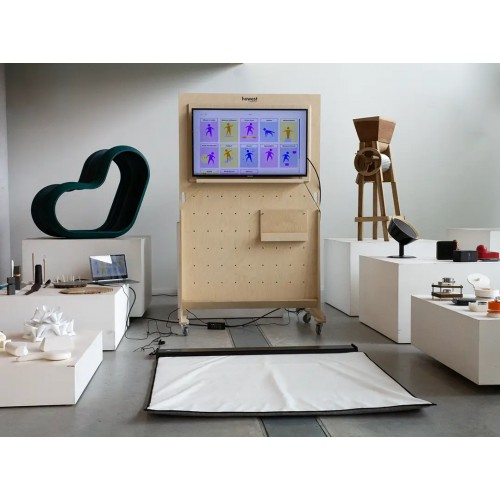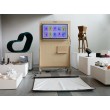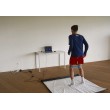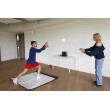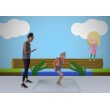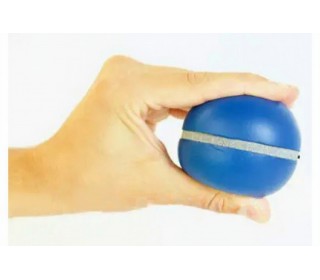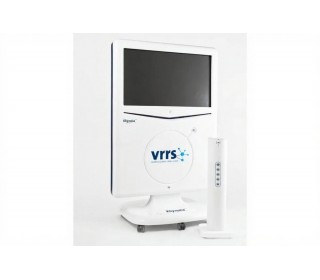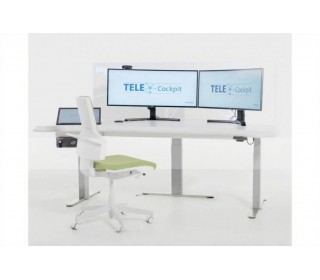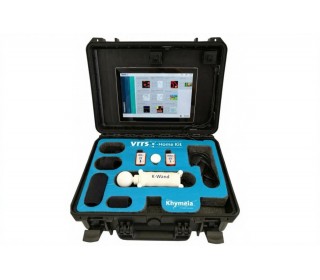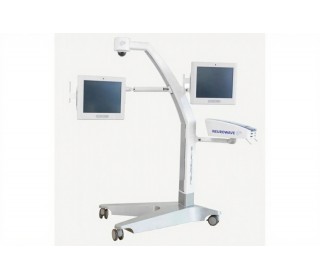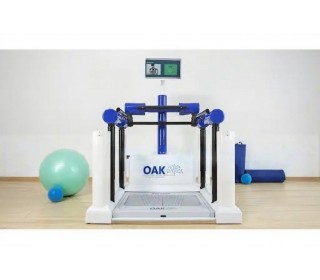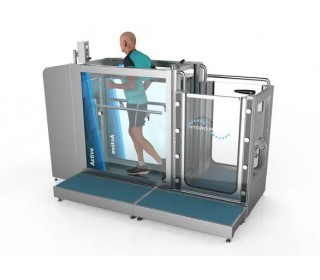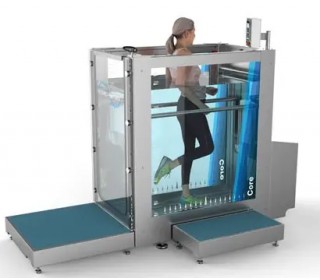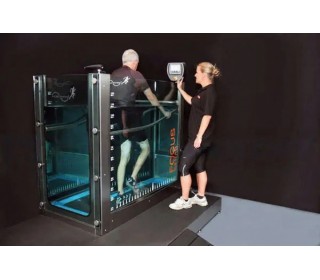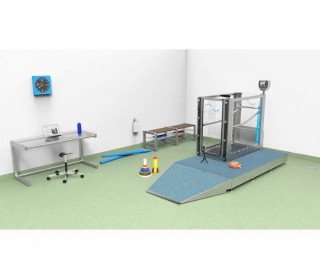Matti - Interactive Mat for Rehabilitation

- Warranty 12-24 months
- Warranty free service and post-warranty
- Equipment instalation and staff training at the company's expense
- Full customer support (phone consultation even after installation)
- Visiting the exhibition hall
- Leasing sale
- Holding conferences and events
- Quick response to a request
Matti is an interactive sensory mat that will greatly expand the possibilities in rehabilitation and simplify the work of rehabilitation therapists. Patients can use Matti to perform complex exergames (a combination of game and therapy) on their own and then track their progress in sessions with their therapist. Research in collaboration with Ghent University shows that this increases their motivation and the quality of their exercise performance. In addition, as a therapist, you get more information thanks to automatic data collection and analysis to provide better objective data.
Measurement is knowledge
This motto is widely used in science and technology. This principle is also applicable in the medical field. Matti will allow you to create a clear and unambiguous picture of the patient's condition; objectively and qualitatively. The biggest obstacles that therapists themselves admit in rehabilitation are the lack of knowledge, time, resources and support. Matti with its integrated online platform Creative Therapy offers a solution to these problems.
Play therapy
In recent years, there has been a huge growth in digital applications inspired by video games. This trend is often described as "gamification" and has been widely studied and described in various disciplines. Matti brings this form of therapy to rehabilitation and sports physical education. The exercises in Matti are divided into "simple and complex". All of them can be considered full-fledged games that are specifically designed with a different purpose than mere entertainment.
Matti uses the following principles for gamification of therapy:
1. Use of game mechanics
Game mechanics are the basis of the game system. They define how the user can interact with the system, therefore,
2. Use of game language
Define big and small goals. Direct small goals in the game to achieve big goals outside the game.
3. Personalization of therapy
Consider the patient's personality and interests.
4. Focus on neuroplasticity through reward
The feeling of achievement causes the release of dopamine in the brain. Dopamine stimulates the formation of new synaptic connections and thus stimulates the rehabilitation process.
The Importance of Motivation in Therapy
Our motivation largely determines our behavior. In the context of the rehabilitation process, therapists also strive to adapt health behavior. For this reason, motivation plays an important role in therapy. Several studies have shown that motivated patients show better results at the end of the rehabilitation process. Matti uses unobtrusive, adaptive therapy, due to which patients feel less routine, and the illustration of progress will only add motivation.
Rehabilitation after Covid-19
Scientific literature and evidence-based recommendations on the best approaches to post-COVID (or long-term COVID rehabilitation) are still lacking. These consequences include fatigue, shortness of breath, and cognitive impairment that affect daily life and remain with the patient for at least 2 months (for the first 3 months after infection). Due to the variability of this condition, it is essential to monitor the patient's vital signs and physical limitations during these sessions. Equally important will be teaching the patient to assess their own strength. Matti follows the recommendations and allows for a gradual increase in the intensity of general therapy, in addition, even basic movement exercises for the upper and lower limbs help in COVID rehabilitation (especially in the initial stages of therapy), and Creative Therapy will definitely be of interest to the patient with a variety of therapies.
| Manufacturer | Creative |
| Country of Origin | Belgium |
| Condition | New |


